One of the best ways of how to reduce a carbon footprint, is to start a plastic free life. Saying goodbye to plastic is easier than what you think. I have been making a conscious effort to reduce the amount of plastic that I use and have come across several eco friendly, reusable options. 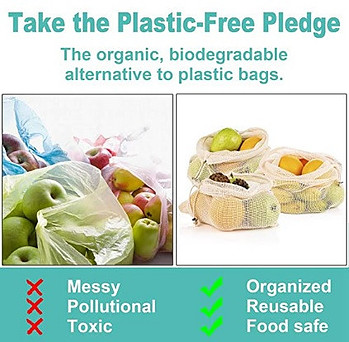
Getting the best reusable produce bags, will be part of the journey of starting my plastic free life, and one of the ways of how to reduce a carbon footprint that I leave behind.
Easy ways to reduce waste is to refuse single use plastic, bring your own reusable produce bags and shopping bags, use a reusable coffee cup and water bottles, use reusable cutlery when you are out, grow your own food and swap and upcycle clothes.
But before we look at the steps on how to reduce a carbon footprint and start my plastic free life, let’s have a look at some key terms associated with sustainable and eco friendly living.
Key Terms of Ecology
With more consumers becoming aware of how important it is that we must look after our environment, it has led to some key terms that are being used when it comes to ecology. Our language has been enriched with a lot of strange words that have become commonplace.
From green to ecological, sustainable and eco friendly, recyclable and compostable, are all words that we hear and use every day, but what do they mean? Do you really know them all?
So let’s have a look at some of these strange words, some of which you might know. We’ll start with the easy ones.
- Recycling – this is the process of converting waste materials, such as plastic, paper, glass or even clothes, into
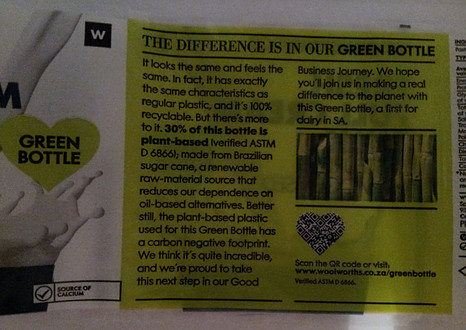 reusable materials. So instead of being destroyed, which is adding to pollution, or sent to landfill, it is reused for other purposes. Recycling plastic means that clothes, shoes or other products can be made from it.
reusable materials. So instead of being destroyed, which is adding to pollution, or sent to landfill, it is reused for other purposes. Recycling plastic means that clothes, shoes or other products can be made from it. - Recyclable – a product or substance that is able to be recycled.
- Related post: What is recycled plastic used for?
- Sustainable – Sustainability is quite a broad term, but it basically boils down to safeguarding our environmental resources. Without using too many resources and causing pollution, sustainability places the emphasis on the future. It is maintaining a certain rate or level and also conserving an ecological balance, by avoiding depletion of our natural resources. The adjective is used to indicate all those foods or products where the production does not harm the environment and is therefore “sustainable” and therefore pollutes little.
- Biodegradable – This indicates the ability of a material to be degraded into simpler substances (water, methane, etc.) through the enzymatic action of small bacteria or other microorganisms. Everything is degradable over time, so in reality the fundamental point is not to establish whether the object is degradable, but to what extent it is biodegradable. The European standard for a material to be called “biodegradable”, means that at least 90% of the material must be able to be “nibbled” by bacteria, within six months.
- Compostable – This is similar to the concept of biodegradable, but it represents the ability of a material to turn into compost, a natural fertilizer, within three months. There is a subtle difference, but enough to differentiate, so much so that, compostable shopping bags must be disposed of in the organic bucket, while the biodegradable ones must be thrown into the plastic bin. More about compostable plastic below.
- Environmental impact – These are the changes and transformations that is happening in the environment, because of what humans are doing. A leather factory, for example, has a high environmental impact because of the chemicals that are used and the amount of water pollution associated with it. In addition to consuming resources for the operation, chemicals are harmful to the workers. And machinery and processes used, also pollute the air a lot.
- Green and green economy – The meaning of the word green no longer just refers to the color green, it is now a reference to everything that is related to the environment. And it covers many different sectors. It is that kind of economic model which, in addition to the aspect of “gain” (investments, resources, productivity, etc.) also takes into account the environmental impact. So as an example, how much will the production and processing of a given product or material, pollute the environment? In practice a “green” economy is interested in favoring and using the most sustainable production processes possible.
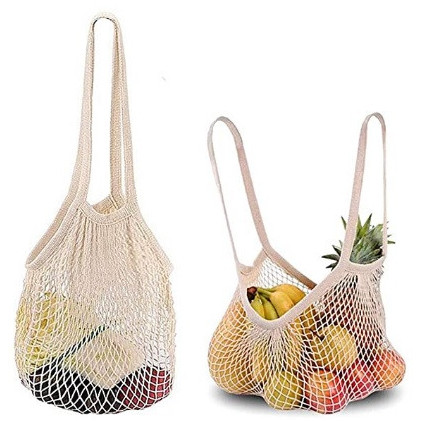
- Ecology and ecological – ecology refers to the relationship between organisms and their environment, and the balances between these relationships. An ecological disaster is something that affects organisms and how they relate to each other and the environment. Plastic pollution poses a serious threat to the ecological balance of our oceans. Unfortunately it is often ecological events and disasters like an oil spill, that would draw the attention to the importance of looking after our planet.
- Eco friendly or environmentally friendly – Instead of the adjective “sustainable”, a nice and widely used English form, is eco friendly or environmentally friendly. Here we are talking about something that will not harm the environment. So it is pro-environment and is something that is friendly to the environment. The concept is not as wide as “green”.
- Renewable – A material or energy is renewable when it can regenerate in a short time. Oil is not a renewable product because it takes thousands of years to create new oil. Solar energy or wind energy, on the other hand, are almost inexhaustible energy sources.
- Greenwashing – when a person or company is trying to make people believe that they are doing more to protect the environment, than what they are actually doing. It is an attempt to make a business seem interested in protecting the natural environment, when in reality they are not doing it.
What is Compostable Plastics? 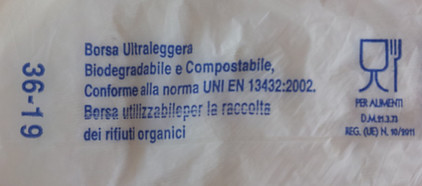
Compostable plastic is usually created from vegetable matter such as corn, and although it is a positive step, it is not enough. There are an increasing amount of alternatives to replace plastic. Businesses and consumers must both make the commitment to use ecological materials for the packaging of their products.
Compostable plastic, when it can no longer be used, can become a fertilizer because of the vegetable origin of the eco friendly plastic. This is a great way of how to reduce a carbon footprint.
Related post: What is Compostable Plastics?
How do you Spot Greenwashing?
Greenwashing can be very confusing. Greenwashing is when deceptive marketing techniques are used to convince consumers that a company’s vision and products are environmentally friendly.
Many companies have been accused of greenwashing. This is because they appear to be aligning themselves with pro environmental causes, while violating environment standards at the same time.
So what is the difference between sustainable and ecological? Sustainability has much higher standards than just being green or ecological. Green does not necessarily mean sustainable, while sustainability includes eco compatible activities and ecological products.
Steps towards My Plastic Free Life and Sustainable Living
A few swaps can make your home more sustainable. The first step towards sustainable living is to believe that you can make a difference. So here are some steps that you can include. The list is not meant to be overwhelming and you do not have to do it all at once. Just get started and choose a few that seem doable to you. 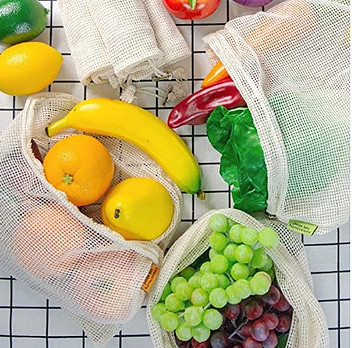
Plastic bags contribute to pollution and disposal is also harmful to the environment. There are now so many reusable and recyclable options available, that there is no longer any excuse for us to be using plastic.
- Carry reusable produce bags when you go shopping to avoid the single use plastic bags that shops provide. The best reusable produce bags should be made from cotton or natural fibers and not be made from plastic like nylon or polyester. Unless it specifically says it is made from recycled plastic.
- Carry reusable shopping bags with you and these should be made from cotton or another natural fiber like hemp or jute, not plastic like nylon or polyester. A reusable shopping bag can avoid a massive amount of plastic pollution. They can be used over and over again and are strong and look attractive.
- A reusable glass jar can make a huge difference.
- Carry a reusable water bottle when you are out and about. A refillable or reusable water bottle can save millions of marine animals.
- Say no to bottled water that are in plastic bottles. If you really want to buy bottled water, then choose a brand that uses glass.
- Reusable keep cups can be used for your take away coffee or drinks.
- Take you own containers for take away food and left overs (doggy bags) at restaurants.
- Say no to disposable plastic razors. Instead use an eco-friendly, plastic-free razor that is made with the mission to save our oceans.
Related post: Guide to Stainless Steel Food Storage Container.
- Use you own containers when you buy meat and prepared foods.
- Look for products that are made from recycled plastic, that will help clean our waterways and oceans. Monarch is producing a duffle backpack, made with 50 recycled plastic bottles. It is also a certified plastic negative product.
- A bamboo toothbrush can help to improve environmental safety.
- Beeswax food wraps can replace plastic cling film.
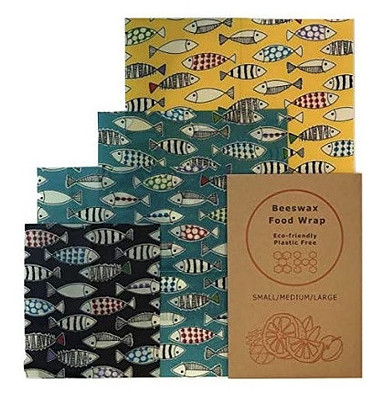
- Choose milk in a returnable glass bottle.
- Cut out juices and beverages that are sold in plastic containers.
- Buy fresh bread that comes in a paper bag or no bag. Reusable bread bags are also available.
- Avoid buying frozen convenience food that is packaged in plastic.
- If you have a local farmers market, shop there where you can buy loose fruit and vegetables.
- Return containers for small and soft produce, like berries and cherry tomatoes, to the market or greengrocer.
- Take your own containers to the supermarket and transfer the small berries and tomatoes to your own container, and leave the plastic behind. If enough of us do that, the shop owner will take note and use eco friendly alternatives like cardboard.
Related post: Ultimate Guide to the Best Food Storage containers.
I am sure there are many more ways of how to reduce a carbon footprint. So if you have any suggestions that I can include in my plastic free life, please leave them in the comments below.
Related post: Best Glass Food Containers with lids.
So start your plastic free journey today and get reusable eco friendly produce bags, shopping bags and much more.
- If you are in the USA, click on this link to get the best reusable produce bags on Amazon here.
- If you are in the UK or EU, use this link to get your cotton reusable produce bags and shopping bags.
You can Make a Difference 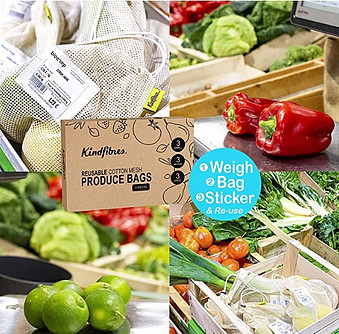
If consumption of water in plastic bottles do not diminish rapidly, then by 2050, there will be more plastic in the ocean than fish. It is estimated that 80% of marine pollution comes from plastic and 49% of plastic waste comes from single use plastic. More and more people are using eco friendly reusable alternatives to plastic water bottles.
Replacing traditional petrochemical plastic with less polluting materials is possible. We can all change our bad habits, learn how to reduce a carbon footprint and help support the environment.
Only by changing our consumption and habits, is it possible to protect the environment and improve the quality of life. One step towards a greener and more sustainable future, and a sure part of my plastic free life, is to swap your plastic bags and bottles for reusable alternatives, like water bottles and reusable produce bags.
We live in a disposable culture, so before you throw anything in the trash can, ask yourself the question: could I have used it more or can I recycle it?
If you have any questions or suggestions about my plastic free life and starting yours, then please leave them below and I will get back to you.

I think it would be harder than most people imagine to truly live a plastic-free life. Sure the examples you mention could work for some people, but many others live in places like food deserts, where there are no fresh foods available and everything comes packaged in plastic. Even life-saving medications are often wrapped in plastics or dispensed into plastic bottles. Still, you do provide many great ways and ideas to reduce plastic use!
I agree that there are certain products where you do not have a choice, like medication. It is to a large extent the unnecessary plastic packaging that can be reduced. Why wrap a bunch of bananas in plastic? Nature has already provided them with the best packaging. Even just small steps can help.
Thanks for writing such a great post about not using plastic. I have become accustomed to bringing my bags to the grocery store and feel great about that, but I know that there are many plastics in my life and areas where I can reduce my plastic usage. I am working on buying more foods locally that aren’t packaged in plastic. Farmers’ markets are great and you can bring your own bags there.
I love farmer’s markets and yes there is far less produce that is packaged in plastic there. Using your own grocery and produce bags are a great way to reduce the amount of plastic that you use.
Eco World have outdone herself in the choice of the topic. in fact, this is an issue that is affecting the whole world but thanks to them we are being educated through their content. I really enjoyed reading their coverage. The topic is well tackled with relevant background theme, pictures and resourceful links that show a perfect job in terms of research. My opinion about the overall website and the topics covered, I can say they are very matured for my review but thanks I came across their site where I learnt one/two things in terms of organizing their adverts and sharing tools.
Keep up with the good work guyz, I am impressed.
Lucky
Thank you for your kind comments and you are welcome. Plastic waste certainly affects all of us and we can all make a difference, even just starting with one change, can make a difference in how to reduce a carbon footprint.
A very good coverage of an important issue that is affecting the whole world but hey, thanks to you for equipping us as readers. I am totally impressed thus shared the content with my friends.
Thank you and you are welcome, the more we can share and get the information out there, the better
I have been trying my best to avoid the use of plastic. I not have stoped using all the single use plastic containers in food and also the bottled water. I am currently saving up for soda stream system 🙂 I have the same fruit bag that you use, I got it from IKEA. Is it true that if the bag is biodegradable the rule of thumb is that it is easier to rip? I agree that we all have to be aware of our action and do a better job of saving our planet now. Pollutions and contaminants are the biggest culprit to our health, look at all these chronic diseases. Thanks for sharing these amazing information.
I have never heard that a biodegradable bag is easier to rip, I think it depends on many other factors as well. Some bags are very thin and flimsy and would rip, so far better to say no to plastic bags and use the best reusable produce bags instead.
This is a subject that I do not think about often but after reading your article I probably should! I am aware that a lot of pollution makes its way to our oceans, but 80% comes from plastic!? I would never have imagined it would be that impactful. Although we do recycle at our house, I am sure there is more that we could do, thank you for giving examples of how we could be more productive when it comes to recycling and living a more “green” life.
Plastic waste is a huge problem and if we don’t drastically reduce the amount of plastic that is produced, then by 2050 there will be more plastic in our oceans than fish. It is frightening to think about and we can each make a difference, even if we start with small steps, it is better than nothing.
Hello there, i am really glad I came across this beautiful content. I am currently working on a project about the harmful effects of plastics and micro plastics in the environment. This review is really educative and i have learnt some key points from this as well. Thanks for sharing
Good to know that you now know how to reduce a carbon footprint and make a difference.
Eliminating plastic use is a great first step. But there is absolutely nothing more damaging to the environment than animal agriculture.
Animal farming is indeed very damaging to the environment. In this post we were discussing ways to reduce our use of plastic and using reusable products, not the pros and cons of animal farming. I hope that clarifies.
Anything that results in less plastic is great news in my books. Where I currently live in Chile, I still take a sack and use it to clear a space on the beach. Typically, it included huge amounts of plastic, on the same beach from where you can see sea lions, dolphins and whales. It really saddened me as it undoubtedly impacted on the wildlife. I`m pleased to say that following new regulations here, there are far fewer plastics bags and containers on the beach, but there are still far too many. Your article is a welcome contribution to this important debate to help raise awareness. I FULLY agree with your suggestions in your post where you have described some really practical steps to live “plastic free”. I hope it is widely seen. Why do you think people are still slow to take up a plastic free lifestyle? Do you think the packaging industry could do more?
What a great initiative to do a beach clean-up and good news that with new regulations there is less plastic, although still too much.
I certainly think the packaging industry and manufacturers could do more in terms of how to reduce a carbon footprint. There are alternatives like corn starch plastic that can be used as well. We can all make a difference, even if it is just one thing that we change.
Hi,
One of the best ways of how to reduce a carbon (footprint) is to try to start a plastic-free life. However, It would be far better; For the people; Producing items for sale, (big manufactures) in less plastic; rather than blaming the people for the way they rid themselves of their plastic.
In your article;
Are we talking about us; the general public; that has everything in plastic on aeroplanes, at airports, in Mc Donalds; All things people like and use daily; It’s more than those areas that need help; Not only single-bag use thereof.
I feel we are fighting a losing battle; I understand most of the terms used in your article;
However, people block roads; they block bridges; making people have to go a long way; using more energy, mostly in the form of petrol consumption.
You are right with regards to sustainable and ecological; The thing is most people do not know the difference; Once again; My opinion is that ‘Governments need to bring more aw
awareness to the people; ‘Governments’ need to spend more; In providing that information; Manufactures need to use less plastic.
Thanks for your advice regarding bags showcased and ways to improve my carbon. (Footprint!)
I feel that suppliers and manufacturers can do far more in terms of how to reduce a carbon footprint. It is much more than just switching to using the best reusable produce bags, but at least it is a start.
I think that still a small number of people are aware of how much damage we have done to the planet earth and that if our treatment of it does not change as soon as possible, it can have catastrophic consequences. It is very nice that you are promoting a change in lifestyle and an ecological approach to nature. I also try to use things that are not made of plastic and to use what can be recycled. I hope your voice will be heard far away.
Unfortunately we have done a huge amount of damage to our planet and some people still have the attitude that it is not up to them. I currently live in Italy and I see that here a lot, throwing rubbish out their car windows, dumping furniture in the countryside and generally not caring. There are many ways of how to reduce a carbon footprint and even just changing one thing, like starting to use the best reusable produce bags, can make a difference.
There are a lot of people who do not know that there are people in our world who live a type of life like this one where they have decided and dedicated their life to making sure that they do not use any Plastic because they want to save our world. I think it’s a good thing and I am also reducing my personal use of plastics too. This is something I would like to try myself. Thanks.
Yes there are people who will not buy anything that is in plastic. I do think suppliers can do more to use eco friendly and sustainable packaging materials, like corn starch plastic, as a way of how to reduce a carbon footprint.